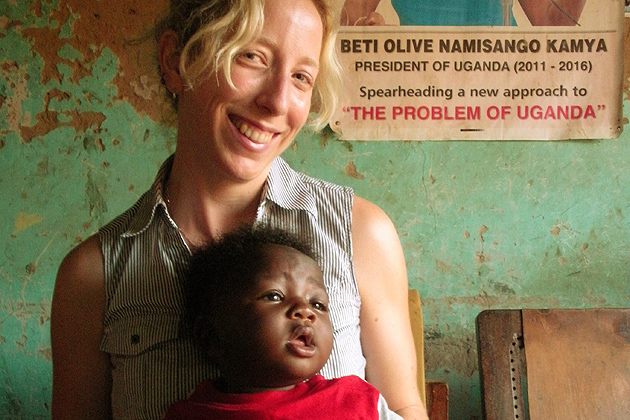
My research and grant-writing experience at the Center for Health, Intervention, and Prevention gave me an entrée into international research on HIV/AIDS.
When I started graduate school at UConn in 2002, my mentor, Professor Jeffrey Fisher – the director of UConn’s Center for Health, Intervention, and Prevention (CHIP) – immediately thrust me into working on a multimillion dollar grant proposal during the final weeks before it was due. While I enjoyed the challenge, I thought, “What did I get myself into?” I knew that I wanted to do HIV/AIDS prevention research, but I didn’t know anything about writing a grant.
Yet by the end of my second year of graduate school, I had submitted my first grant application for a pre-doctoral fellowship to the National Institutes of Health to do research in South Africa. Turns out I did know something about writing a grant – or, rather, I learned quickly. The environment at CHIP was one of high expectations, but also solid support, and it has nurtured the development of many graduate students like me, who have gone on to successful careers in academic research.
I never imagined that I would have the opportunity to do international research. If someone had asked me 10 years ago whether I would now be leading research projects in Africa and traveling there every other month, I would have thought it unlikely. But today I do most of my current research at a rural hospital in Uganda, where we are working to improve HIV testing and prevention services.
Conducting research in Africa while I was still a graduate student at CHIP set my career trajectory, giving me opportunities that have not only boosted my career but also affected me personally.
One day, an old man volunteering at the hospital where I often work in Uganda said to me, “Thank you for being here and coming back” (translated to me by one of my staff). “The others,” he said, “they never come back.” Many researchers visit once, but do not return, in part because of the difficult living and working conditions. I am not the type who imagined that she could survive without running water and electricity, but people like the old man remind me that it is worth it, 10 times over.
Now I am trying to build something sustainable that will further develop public health education and research. I have taken numerous undergraduate and medical students to Uganda and, since joining the UConn Health Center faculty this past fall, I have been working to establish a collaboration between the Health Center and Makerere University School of Public Health in Uganda to foster innovative public health educational, research, and community service activities for Ugandan and UConn students and faculty.
My vision is that we develop a true bidirectional collaboration with student and faculty exchanges and research projects in Uganda and the U.S. The success of this burgeoning collaboration comes down to raising funds and getting grants to support it – those grant writing skills I learned as a graduate student at CHIP continue to come in handy.
Uganda has changed me. I hope that my work provides a brighter future for the many Ugandans who have accepted me as one of them and who continue to inspire me.
Susan M. Kiene ’07 Ph.D. is an assistant professor in the Department of Community Medicine and Health Care at the UConn Health Center and an adjunct faculty member at Brown University.



